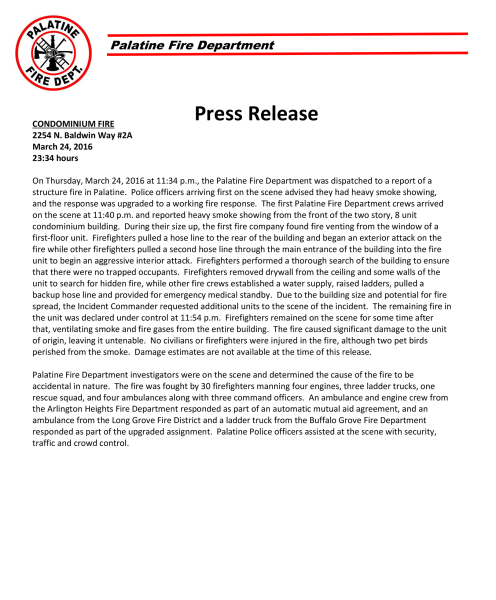Excerpts from the CookCountyRecord.com:
While saying they recognize the fiscal crisis cited by lawmakers in Illinois is real, the justices of the Illinois Supreme Court have again slapped aside an attempt by state legislators to rewrite some public employee pension funding rules, saying the attempt by the state and the city of Chicago to ease the funding burden on the city and its taxpayers violates the state constitution’s prohibition on reducing public employees’ retirement benefits in any way.
On March 24, the state high court ruled 5-0 that the 2014 Chicago public pension reforms law, known formally as Public Act 98-641, runs afoul of the state constitution’s pension protection clause.
Justice Mary Jane Theis authored the court’s opinion, with Chief Justice Rita Garman and justices Robert Thomas, Thomas Kilbride and Lloyd Karmeier concurring. Justices Charles Freeman and Anne Burke abstained from the decision.
The high court decision upheld the ruling of Cook County Circuit Judge Rita Novak, who had invalidated the pension funding reform effort in July 2015, declaring the law failed the constitutional test, just as earlier pension reform attempts enacted Illinois state lawmakers.
Under the reform bill, the state had given the city permission to rework how it funds pensions through two employee retirement funds, the money for which has historically come from city property taxes.
Before the reform bill, city employees had contributed 8.5 percent of their earnings toward their pensions, and the city contributed amounts based on a multiplier of 1 or 1.25 times employee contributions. Retirees would then collect annuities, which would automatically be increased 3 percent, compounded annually, regardless of economic or fiscal circumstances nationally or in Illinois or Chicago. Annuities for retirees who began working for the city in 2011 or later would increase at a rate tied to the Consumer Price Index.
However, later analyses of the city’s pension funds indicated the city’s contributions to the pension funds fell far short, and a multiplier of close to 3 times the employees’ contributions would be required to adequately finance the plan. The city projected, without reforms, its two public employee pension funds, not including police officers and firefighters, would be insolvent in about 10-20 years.
To address those problems, the Illinois General Assembly enacted a reform bill, requiring the city to up its payments to the retirement funds to 90 percent of actuarial funding levels by 2021. It would also have given the pension funds the right to sue the city to obtain court orders requiring it to meet its funding obligations under the law.
In exchange, the city would be allowed to require employees to contribute 0.5 percent more of their pay per year to the pension plans, topping out at 11 percent in 2019. Once the city’s funding ratio reaches 90 percent, the employee contribution levels could be reduced to 9.75 percent.
The law also would strike the automatic 3 percent compounding annuity increases for retirees, replacing them with a different funding formula.
City employees and retirees responded to the reform law with lawsuits, asserting, as with prior public employee pension reform attempts, this one also should be considered illegal under the Illinois state constitution, which includes the so-called pension protection clause which states public employee pension benefits “shall be an enforceable contractual relationship, the benefits of which shall not be diminished or impaired.”
The city argued the reforms should be permitted because they, on net, produce a benefit to public employees and retirees by guaranteeing 90 percent city funding and staving off insolvency in the pension funds.
State Supreme Court justices, however, said they did not believe those legal arguments were valid, as the city’s net benefit argument stands as an attempt to force city employees to pay more and retirees to accept less in exchange for a promise that the city will meet its pension funding obligations, “something already constitutionally mandated by the pension protection clause.”
Further, they noted the 90 percent actuarial funding guarantees spelled out in the pension reform law does not stand as a contractual obligation, but merely empowers the retirement funds to sue the city to uphold the guarantee. And that, the justices said, would leave retirees with access only to what the city may have available to fund the pensions, rather than an ironclad legal guarantee to the funding level promised.
They noted the court had ruled in 2015 that a fiscal crisis does not give the state the power under the state constitution to sidestep the diminishment and impairment clause. And the same doctrine should apply to the Chicago reform attempt, justices said.
The justices said the city’s legal reasoning “would lead to an absurd and unjust result.”
“Rather, as we have explained, the Illinois Constitution mandates that members of the Fund have ‘a legally enforceable right to receive the benefits they have been promised’ – not merely to receive whatever happens to remain in the funds,” justices wrote.
Justices also brushed aside the city’s contention the reform bill was the result of years of talks with unions representing city employees, and so should be allowed to stand. While acknowledging the unions’ participation in the drafting of the reforms, the court said they did not believe the making of the law represented a binding collective bargaining process, so individual retirees and city workers “did not bargain away their constitutional rights in this process.”
“Rather, we agree with the trial court that ‘these negotiations were no different than legislative advocacy on behalf of any interest group supporting collective interests to a lawmaking body,’” the justices wrote. “The individual members of the Funds have done nothing that could be said to have unequivocally assented to the new terms or to have ‘bargained away’ their constitutional rights.”























































